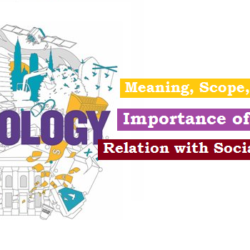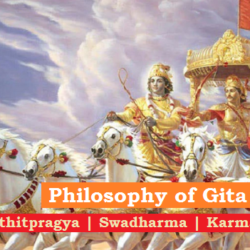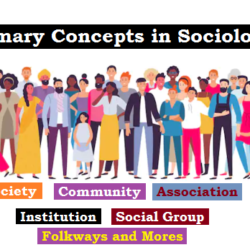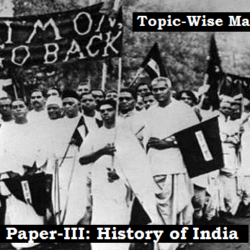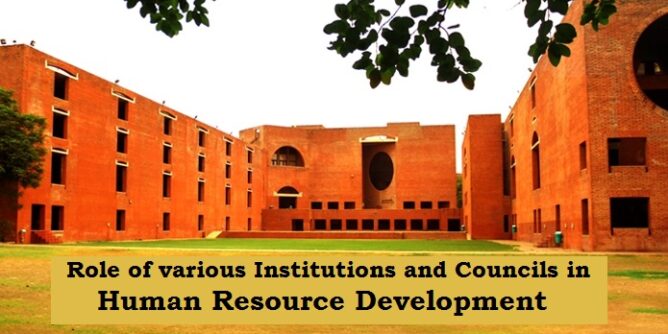
Education is the most important factor in human resource development. Education helps us understand the our surroundings and equips with the required skills to enhance the standard of living. Educational institutions play a vital role in developing human resource of a nation. The population of India is about 125 crore, second highest in the world only after China. However, India lacks educated and skilled manpower. In other words, the mere presence of human beings is not human resource for the country, it has to be made resource through education, skill development and training.
There are various educational institutions in India which are given responsibility to make the 125 crore people to human resource, which could be used to increase the economic output of the nation and enhance the social well-being by bringing people out from vicious cycle of poverty.
The list of most important educational institutions and their significant role in development of human resource is given below.
National Council of Educational Research and Training (NCERT)
The National Council of Educational Research and Training (NCERT) is an autonomous organisation set up in 1961 by the Government of India to assist and advise the Central and State Governments on policies and programmes for qualitative improvement in school education. It was established with the agenda to design and support a common system of education which is national in character and also enables and encourages the diverse culture across the country.
Based on the recommendations of the Education Commission (1964-66), the first national policy statement on education was issued in 1968. The policy endorsed the adoption of a uniform pattern of school education across country consisting of 10 years of general education program followed by 2 years of diversified schooling.
Logo:
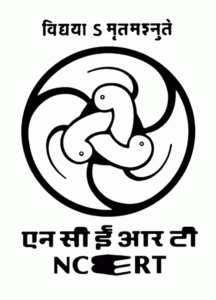
The design of the NCERT logo is taken from an Ashokan period relic of the 3rd century BCE which was found in excavations near Maski in Raichur district, Karnataka. The motto has been taken from the Isha Upanishad and means ‘life eternal through learning‘.
The intertwined hansas symbolise the integration of the three aspects of the work of NCERT:
- Research and development
- Training
- Extension
Objectives:
- To promote and conduct educational research, experimentation of innovative ideas and practice.
- To develop National Curriculum Framework (NCF 2005), syllabi, and textbooks; teaching-learning materials and kits; training models and strategies; audio, video, and ICT materials.
- Training of Pre-service and in-service teacher education and national and state level functionaries.
- To collaborate with State, national and international organizations.
National University of Educational Planning and Administration (NUEPA)
National University of Educational Planning and Administration- NUEPA (Formerly National Institute of Educational Planning and Administration- NIEPA) is a research focused university located in New Delhi, India. The university is fully involved in the capacity building and research in planning and management of education in not only India but also in South Asia, For enormous contribution made by it in the field of education, it was awarded with the status of deemed to be university in August 2006. Thus, university is now fully authorized to conduct its own examinations and give degrees.
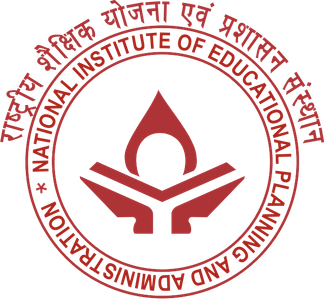
Its mission is to become a centre of excellence in education policy, planning and management by promoting advanced level teaching, research and capacity building in national and global contexts. The research focus is on studying issues of policy and practice in addition to those pertaining to teaching, learning and performance in educational institutions for creating better linkage between educational research and educational policy.
University Grants Commission (UGC)
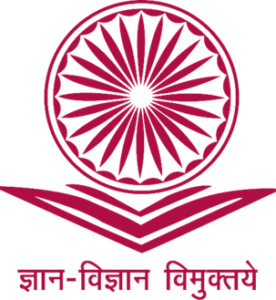
The University Grants Commission is a statutory body set up by the Indian Government in accordance to the UGC Act 1956 under Ministry of Human Resource Development, and is charged with coordination, determination and maintenance of standards of higher education. It provides recognition to universities in India, and disbursements of funds to such recognized universities and colleges.
Its headquarters is in New Delhi and has six regional centres in Pune, Bhopal, Kolkata, Hyderabad, Guwahati and Bangalore.
Background:
The UGC was first formed in 1945 to oversee the work of the three Central Universities of Aligarh, Banaras and Delhi. Its responsibility was extended in 1947 to cover all Indian universities.
In August 1949 a recommendation was made to reconstitute the UGC along similar lines to the University Grants Committee of the United Kingdom. This recommendation was made by the University Education Commission of 1948-1949 which was set up under the chairmanship of S. Radhakrishnan “to report on Indian university education and suggest improvements and extensions”.
Role of UGC:
- Maintaining the standard of research, teaching and examination in the universities.
- Promoting university education
- Making regulations to maintain the minimum standard of education in the country
- It is a link between the union government and the institutes of higher education
- It also advises the government about the steps to be taken in order to improve the education system.
Types of Universities:
The types of universities controlled by the UGC include:
- Central universities:
- Established by an Act of Parliament and are under the purview of the Department of Higher Education in the Union Human Resource Development Ministry.
- State universities:
- Run by the state government of each of the states and territories of India and are usually established by a local legislative assembly act.
- The oldest establishment date listed by the UGC is 1857, shared by the University of Mumbai, the University of Madras and the University of Calcutta.
- Most State Universities are affiliating universities in that they administer a large number of affiliated colleges (many located in very small towns) that typically offer a range of courses.
- Deemed university:
- Or “Deemed to be University”, is a status of autonomy granted by the Department of Higher Education on the advice of the UGC.
- According to this list, the first institute to be granted deemed university status was Indian Institute of Science, which was granted this status on 12 May 1958. In many cases, the same listing by the UGC covers several institutes. For example, the listing for Homi Bhabha National Institute covers the Institute of Mathematical Sciences, the Indira Gandhi Centre for Atomic Research, etc.
- Private universities:
- Approved by the UGC. They can grant degrees but they are not allowed to have off-campus affiliated colleges.
Professional Councils:
UGC, along with CSIR currently conducts NET for appointments of teachers in colleges and universities. It has made NET qualification mandatory for teaching at Graduation level and at Post Graduation level since July 2009. However, those with Ph.D are given five percent relaxation.
Accreditation for higher learning over Universities under the aegis of University Grants Commission is overseen by following autonomous statutory institutions:
- All India Council for Technical Education (AICTE)
- Distance Education Council (DEC)
- Indian Council of Agricultural Research (ICAR)
- Bar Council of India (BCI)
- Board of Theological Education of the Senate of Serampore College (BTESSC)
- National Council for Teacher Education (NCTE)
- Rehabilitation Council of India (RCI)
- Medical Council of India (MCI)
- Pharmacy Council of India (PCI)
- Indian Nursing Council (INC)
- Dental Council of India (DCI)
- Central Council of Homoeopathy (CCH)
- Central Council of Indian Medicine (CCIM)
- National Council for Rural Institutes (NCRI)
- State Councils of Higher Education (SCHE)
- Council of Architecture
- Veterinary Council of India (VCI)
Dissolution of UGC:
In June 2018, Modi government has announced that it will dissolve the University Grants Commission (UGC) and replace it with a new Higher Education Commission of India (HECI). Higher Education Commission of India (Repeal of University Grants Commission Act) Bill 2018 which seeks to repeal UGC Act and provides for setting up of Higher Education Commission of India has been prepared by the Ministry of HRD and placed in public domain for comments and suggestions.
The draft Bill is in accordance with the commitment of Government for reforming the regulatory systems that provide for more autonomy and facilitate holistic growth of the education system which provides greater opportunities to the Indian students at more affordable cost.
The transformation of the regulatory set up is guided by the following principles:
- Less Government and more Governance:
- Downsizing the scope of the Regulator. No more interference in the management issues of the educational institutions.
- Separation of grant functions:
- The grant functions would be carried out by the HRD Ministry, and the HECI would focus only on academic matters.
- End of Inspection Raj:
- Regulation is done through transparent public disclosures, merit-based decision making on matters regarding standards and quality in higher education.
- Focus on academic quality:
- HECI is tasked with the mandate of improving academic standards with specific focus on learning outcomes, evaluation of academic performance by institutions, mentoring of institutions, training of teachers, promote use of educational technology etc.
- It will develop norms for setting standards for opening and closure of institutions, provide for greater flexibility and autonomy to institutions, lay standards for appointments to critical leadership positions at the institutional level irrespective of University started under any Law (including State Law).
- Powers to enforce:
- The Regulator will have powers to enforce compliance to the academic quality standards and will have the power to order closure of sub-standard and bogus institutions.
- Non-compliance could result in fines or jail sentence.
Indira Gandhi National Open University (IGNOU)

Indira Gandhi National Open University (IGNOU) is a Central University located at Maidan Garhi, New Delhi, India. The university was established in 1985 and claims to be the largest university in the world.
IGNOU has started a decentralization process by setting up five zones; north, south, east, west and north-east. IGNOU also operates as an accreditor for Open University and distance education systems in India through the Distance Education Council (DEC).
Role of IGNOU:
- IGNOU was founded to serve the Indian population by means of distance and open education.
- Providing higher education opportunities to all segments of society.
- It also aims to encourage, coordinate and set standards for distance and open education in India,
- To strengthen the human resources of India through education.
Today, it serves the educational aspirations of over 3 million students in India and other countries. Over the years, IGNOU has lived up to the country’s expectations of providing education to the marginalized sections of society. Free of cost education is being provided to all jail inmates across the country. A large number of SC/ST students have been admitted to various programmes of the University.
With the launch of EduSat (a satellite dedicated only to education) on 20th September, 2004, and the establishment of the Inter-University Consortium, the University has ushered in a new era of technology-enabled education in the country. All the regional centres and high enrollment study centres have been provided with active two-way video-conferencing network connectivity, which has made it possible to transact interactive digital content.
Emphasis is now being laid on developing interactive multimedia and online learning, and adding value to the traditional distance education delivery mode with modern technology-enabled education within the framework of blended learning.
All India Council for Technical Education (AICTE)
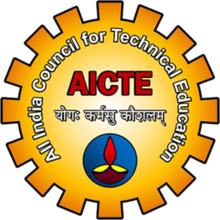
The All India Council for Technical Education (AICTE) is the statutory body and a national-level council for technical education, under Department of Higher Education, Ministry of Human Resource Development.Established in November 1945 first as an advisory body and later on in 1987 given statutory status by an Act of Parliament, AICTE is responsible for proper planning and coordinated development of the technical education and management education system in India. The AICTE accredits postgraduate and graduate programs under specific categories at Indian institutions as per its charter.
Objectives:
- Promotion of Quality in Technical Education
- Planning and Coordinated Development of Technical Education System
- Regulations and Maintenance of Norms and Standards
National Council for Teacher Education (NCTE)
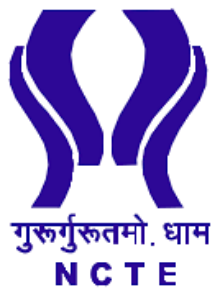
National Council for Teacher Education (NCTE) is a statutory body set up under the National Council for Teacher Education Act, 1993 in 1995 is to formally oversee standards, procedures and processes in the Indian education system.
This council functions for the central as well as state governments on all matter with regard to the Teacher Education and its secretariat is located in the Department of Teacher Education and National Council of Educational Research and Training (NCERT).
Objectives
- To achieve planned and coordinated development of teacher education system throughout the country.
- To regulate and properly maintain the Norms and Standards in the teacher education system and for matters connected therewith.
- It aims at training individuals for equipping them to teach pre-primary, primary, secondary and senior secondary stages in schools, non-formal and part-time education, adult education (correspondence) and distance education courses.
Programmes Recognized:
- Diploma in Elementary Education (D.EI.ED)
- Bachelor of Education (B.Ed) Degree
- Bachelor of Physical Education (B.P.Ed) Degree
And many others.
National Council for Vocational Training (NCVT)
The National Council for Vocational Training (NCVT) is a counseling body that was instituted by the Government of India during the year 1956. The council is responsible for devising the syllabus for the craftsmen training, framing the policies, carrying out the All India Trade Tests, and conferring the National Trade Certificates to the successful candidates. With the NCVT’s headquarters in New Delhi, the main objective of the council is to function as a central agency and counsel the Government of India on formulating the training policies and conducting vocational training throughout India.
Primarily, the NCVT imparts vocational training to: the students after leaving schools; workers; ITI graduates with degrees; diploma holders of engineering and non-engineering courses. By doing so, they can enhance their employment prospects through the optimal utilization of the existing infrastructure in Government, private agencies as well as the industrial sector. Both nationally and internationally, the NCVT certifications are given due recognition.
The Industrial Training Institute (ITI) courses are affiliated with NCVT. As part of the ITI programs, a series of engineering and non-engineering trades are included.
Merger of NCVT with NSDA:
The Union Cabinet has approved the merger of the existing regulatory institutions in the skills space – National Council for Vocational Training (NCVT) and the National Skill Development Agency (NSDA) into the National Council for Vocational Education and Training (NCVET).
The NCVT was a regulator and assessment body of the long-term skill education space, while the NSDA was a policy formulating body of the skill development ministry helping it devise training and industry collaboration policy for the Skill India mission.
This will lead to improvement in quality and market relevance of skill development programs lending credibility to vocational education and training encouraging greater private investment and employer participation in the skills space. This is also expected to facilitate the ease of doing business by providing a steady supply of skilled workforce to the industry and services.
Indian Council of Agricultural Research (ICAR)
The Indian Council of Agricultural Research (ICAR) is an autonomous body responsible for coordinating agricultural education and research in India. It reports to the Department of Agricultural Research and Education, Ministry of Agriculture. The Union Minister of Agriculture serves as its president.
Objectives:
- To plan, undertake, aid, promote and coordinate education, research and its application in agriculture, agro-forestry, animal husbandry, fisheries, home science and allied sciences.
- To act as a clearing house of research and general information through its publications and information system; and instituting and promoting transfer of technology programmes
- To provide, undertake and promote consultancy services in the fields of education, research, training and dissemination of information
- To look into the problems relating to broader areas of rural development concerning agriculture, including post harvest technology by developing co-operative programmes with other organizations such as the Indian Council of Social Science Research, Council of Scientific and Industrial Research, Bhabha Atomic Research Centre and the universities.
Admission:

All India Entrance Exam for Agriculture (AIEEA) is an entrance exam for admission into the agricultural universities recognized by ICAR. The Agricultural Scientists Recruitment Board (ASRB) conducts all India competitive examination Agricultural Research Service (ARS), to recruit posts in the ARS of Indian Council of Agricultural Research (ICAR).
ICAR institutions:
ICAR has many deemed universities, special institutions, research centers, among others.
- Deemed Universities: Indian Agricultural Research Institute (New Delhi), Indian Veterinary Research Institute (Bareilly) National Dairy Research Institute (Karnal), Central Institute of Fisheries Education (Mumbai)
- Institutes: Central Arid Zone Research Institute (Jodhpur), Central Institute of Agricultural Engineering (Bhopal), National Rice Research Institute (Cuttack), National Institute of Biotic Stresses Management (Raipur), Indian Institute of Spices Research (Calicut), etc.
- National Research Centers: National Research Centre for Banana (Trichy), National Research Centre for Citrus (Nagpur), National Research Centre on Litchi (Muzaffarpur), etc.
Role of ICAR:

- The ICAR has played a pioneering role in ushering Green Revolution and subsequent developments in agriculture in India through its research and technology development that has enabled the country to increase the production of
- Food grains by 4 times,
- Horticultural crops by 6 times,
- Fish by 9 times (marine 5 times and inland 17 times),
- Milk 6 times and eggs 27 times since 1950-51,
- Thus making a visible impact on the national food and nutritional security.
- It has played a major role in promoting excellence in higher education in agriculture. It is engaged in cutting edge areas of science and technology development and its scientists are internationally acknowledged in their fields.
Indian Institutes of Technology (IIT)
The Indian Institutes of Technology (IITs) are autonomous public institutes of higher education governed by the Institutes of Technology Act, 1961which has declared them as institutions of national importance and lays down their powers, duties, and framework for governance. Each IIT is autonomous, linked to the others through a common council (IIT Council), which oversees their administration. The Minister of Human Resource Development is the ex officio Chairperson of the IIT Council.
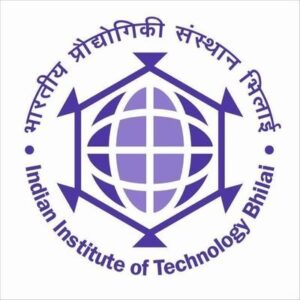
The President of India is the most powerful person in the organizational structure of Indian Institutes of Technology, being the ex officio Visitor and having residual powers. Directly under the President is the IIT Council, which comprises the minister-in-charge of technical education in the Union Government
Background:
The history of the IIT system dates back to 1946 when Sir Jogendra Singh of the Viceroy’s Executive Council set up a committee whose task was to consider the creation of Higher Technical Institutions for post-war industrial development in India. The 22-member committee, headed by Nalini Ranjan Sarkar, recommended the establishment of these institutions in various parts of India, with affiliated secondary institutions.
The first Indian Institute of Technology was founded in May 1950 at the site of the Hijli Detention Camp in Kharagpur. The first Indian Institute of Technology was established in 1951. On 15 September 1956, the Parliament of India passed the Indian Institute of Technology (Kharagpur) Act, declaring it as an Institute of National Importance.
Criticism:
The IITs have faced criticism from within and outside academia. Major concerns include allegations that they utilize public resources to finance graduates to serve western nations (encourage brain drain) and that their stringent entrance examinations encourage coaching colleges and skew the socio-economic profile of the student body.
IITs have been criticized for failing to be among the top 100 universities in the QS and the Times Higher Education global rankings. IITs have also been censured for publishing less research papers.
Indian Institutes of Management (IIM)
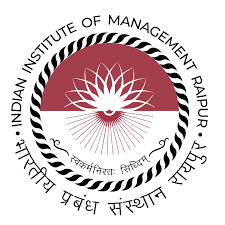
The Indian Institute of Management (IIMs) are autonomous institutes of management education and research in India. They primarily offer postgraduate, doctoral and executive education programmes. IIMs are declared as institutions of national importance after the passage of Indian Institutes of Management Act, 2017.
They were established with the objectives of imparting high quality management education and training, conducting research and providing consultancy services in the field of management to various sectors of the Indian economy. These institutions are recognized as premier management institutions, comparable to the best in the World for teaching, research and interaction with industries.
The establishment of IIMs was initiated by Jawaharlal Nehru, the first Prime Minister of India, based on the recommendation of the Planning Commission.
IIMs also conduct research to cater to the needs of non-corporate and under-managed sectors, viz. Agriculture, Rural Development, Public Systems Management, Energy, Health Education, Habitat, etc. IIMs being role models have shared knowledge and skills with other institutions to improve their quality and standards in management education. IIMs have earned an international reputation for the quality of their alumni.
Entrance Exam:
Admission for residents of India to the flagship two-year PGP programmes at all IIMs is based on the Common Admission Test (CAT). CAT scores are often used as the primary short-listing criteria for admissions. International/overseas applicants have the option to apply using GMAT scores in lieu of CAT scores.
National Institutes of Technology (NIT)
The National Institutes of Technology (NITs) are autonomous institutes of higher education governed by the National Institutes of Technology Act, 2007, which declared them as institutions of national importance alongside Indian Institutes of Technology (IITs). All NITs are autonomous which enables them to set up their own curriculum.
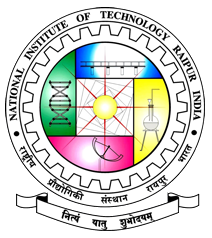
NITs offer degree courses at bachelors, masters, and doctorate levels in various branches of engineering, architecture, management and science. Admission to the under-graduate courses such as Bachelor of Technology (B.Tech) and Bachelor of Architecture (B.Arch) programs in NITs are through the highly competitive Joint Entrance Examination (Main). Admission to postgraduate courses are through the Graduate Aptitude Test in Engineering (GATE) for Master of Technology (M.Tech) and Master of Science (M.Sc.) programs, Common Admission Test (CAT) for Master of Business Administration (MBA) program and NIMCET for Master of Computer Applications (MCA) program.
Background:
During the second five-year plan (1956–60) in India, a number of industrial projects were contemplated. To ensure enough supply of trained personnel to meet the demand for these projects, a decision was taken to start the Regional Engineering Colleges (RECs), at the rate of one per each major state, which can churn out graduates with good engineering merit. Thus, seventeen RECs were established from 1959 onwards in each of the major states. Each college was a joint and cooperative enterprise of the central government and the concerned state government.
The success of technology-based industry led to high demand for technical and scientific education. Due to the enormous costs and infrastructure involved in creating globally respected Indian Institutes of Technology (IITs), in 2002 Ministry of Human Resource Development (MHRD) Minister Murli Manohar Joshi decided to upgrade RECs to “National Institutes of Technology” (NITs) instead of creating IITs. The central government controls NITs and provides all funding. In 2002, all RECs became NITs.
National Law University (NLU)
National Law Universities are single-discipline universities that offer integrated honours as well as law degrees to aspirants. The first NLU was established in 1986 and was called National Law School of India University (NLSIU), Bangalore. NLSIU was established under National Law School of India Act, 1986.
Following the footsteps of NLSIU Bangalore, many other State Legislative Assemblies also passed legislations to establish national law schools. All the National Law Schools (NLS) thus established may differ from NLSIU in terms of modalities but their structure as well as model of imparting education is more or less the same.
But an astonishing thing about NLUs is that they have been established by the act of the state government. Thus, even though they are called “National” Law Universities, they are basically state level law universities. So, every NLU is recognized as a State University only by the UGC.
Another aspect is that most of these law schools fall under the Chief Justice of High Courts of the state in which they are constituted. These Chief Justices act as the University’s chancellor also. Also, many of the NLS are put under nodal supervision of the law and justice department in the state government and kept out of the department of higher education.
Admission:
Admissions in NLUs can be done only by means of a central entrance exam which is Common Law Admission Test (CLAT). However, some of the NLUs conduct their own entrance examinations.

 Home
Home Syllabus
Syllabus Contact Us
Contact Us
